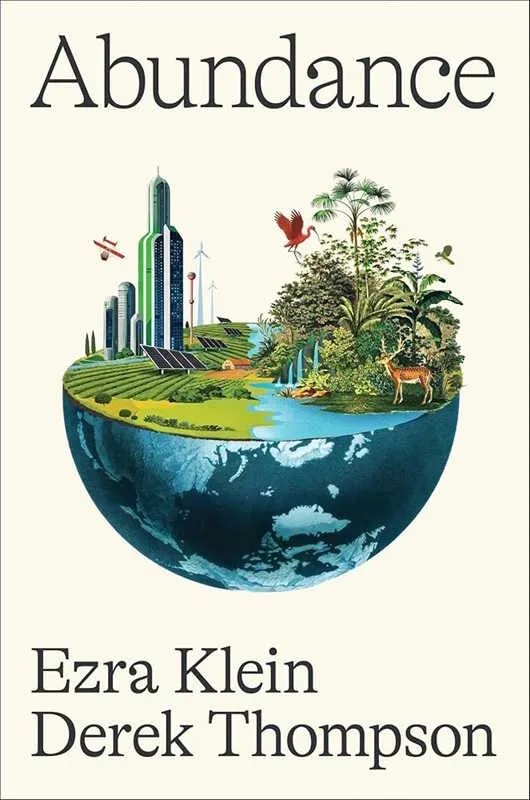
Abundance is just trickle-down economics in Patagonia fleece and Allbirds—cozy, sustainable vibes while selling Reaganomics with a Substack subscription, still catering to the top but with a personal essay explaining why the same old supply-side stuff is actually good for everyone.
This late I’m the game pitching a deck of faux YIMBY-ism for tax cuts—full of flashy slides and disruption jargon—served up like an oat milk latte: smooth, trendy, and ethical-looking, but still delivering the same old caffeine hit of deregulation. The problem for the Dems is that there isn’t a single figure in the party who can learn the new moves fast enough to put a face to this. Maybe Pete Buttigieg—but my sense is that the resister crowd has been burned badly and isn’t in the mood for more gig economy with venture capital talking points, spinning inequality into an exciting new “opportunity.” Or Silicon Valley techno-optimism with a BeReal filter, trying to look authentic while keeping the real benefits at the top. Or yet another round of AI-generated prosperity gospel in a Discord server, promising abundance for all but only delivering it to the early adopters.
Klein’s vision is a Peloton of policy—streaming live classes on collective effort while the metrics show only the privileged logging miles. The Democrats’ playbook, meanwhile, reads like a LinkedIn influencer’s manifesto: hustle culture repackaged as civic duty, where “leaning in” means letting Silicon Valley monetize your data footprint as a form of patriotism. But the algorithm of inequality isn’t fooled by rebranded austerity; it still sorts us into hashtag movements and shadow-bans dissent into echo chambers of performative wokeness. Imagine a TED Talk on universal healthcare that ends with a QR code for a wellness app subscription—that’s the dissonance here. *“Ezra Klein’s latest work is a masterclass in elite problem-solving: identify a crisis, nod sagely at the complexity, and then propose a solution that conveniently aligns with old-school deregulation—just with better branding. Housing crisis? Easy. Deregulate the building code. Who needs walls anyway? Sure, your new apartment might crumple like a paper bag in a stiff breeze, but think about the trade-offs! Lower costs! Faster construction! More growth! And if you’re worried, well, just be rich enough to live somewhere with actual safety regulations.
The tragedy isn’t that Klein’s ideas are new wine in old bottles—it’s that the bottles are Yeti tumblers, vacuum-sealed to keep the fizz of revolution from going flat. His techno-optimism is a viral TikTok dance: everyone mimics the steps, but no one questions who’s cashing the ad revenue from the views. It’s a DAO for democracy—decentralized in name, but somehow the VCs still hold the keys to the treasury. Meanwhile, the left is stuck debating whether to meme-strike or post another infographic, as the Overton Window gets dragged right by a Tesla on autopilot.
And what’s the endgame? A Metaverse town hall where avatars clap emojis for UBI proposals drafted by ChatGPT, while real-world evictions get livestreamed as dystopian entertainment. Klein’s “abundance” is a loot box economy—keep swiping your card for a chance at healthcare, education, or a livable planet. The Democrats keep hiring McKinsey to design their platforms, wondering why the grassroots feel like AstroTurf. Maybe the real disruption isn’t an app; it’s a strike. But that’s not a pitch you can slap on a Super Bowl ad for blockchain voting.
So here we are: scrolling through Substacks about the future, liking essays on solidarity, while the wealth gap widens into a render distance no GPU can bridge. Klein’s book isn’t a roadmap—it’s a Snapchat filter, smoothing out the cracks of late capitalism with a puppy-ear illusion of progress. The only abundance here? Copium for the professional class, bottled as a limited-edition drop.